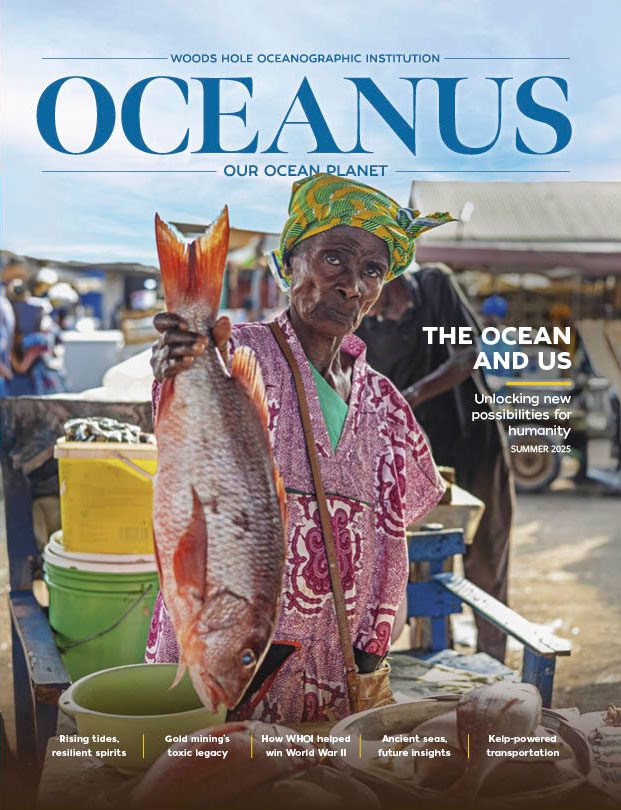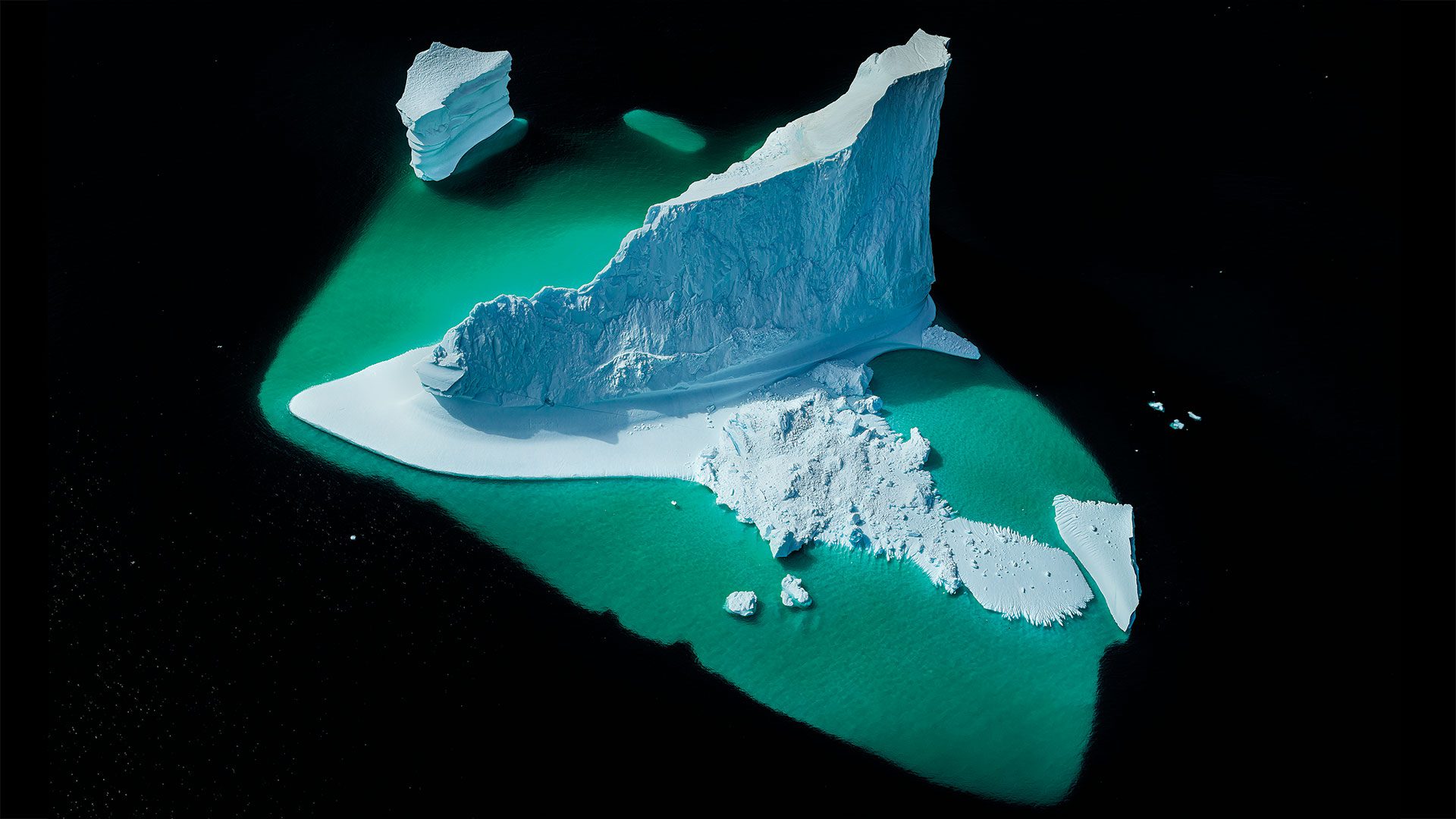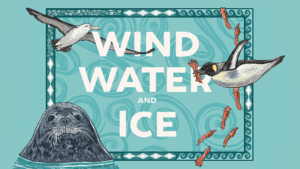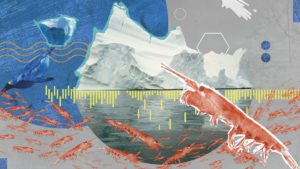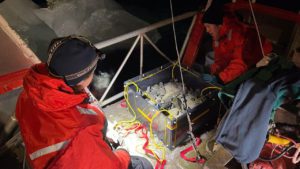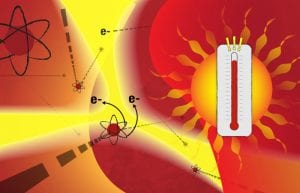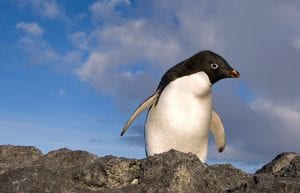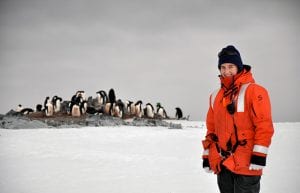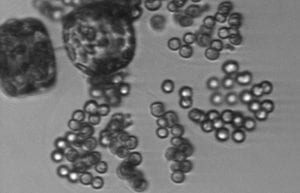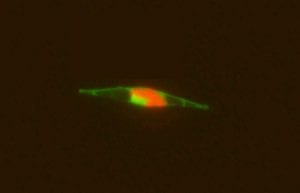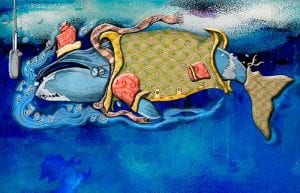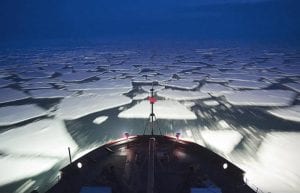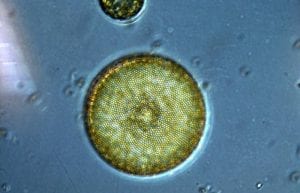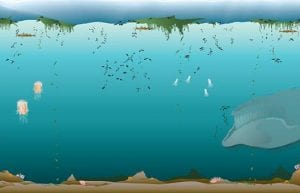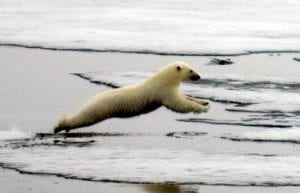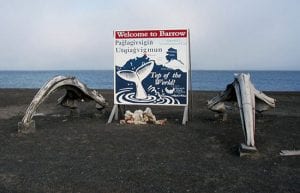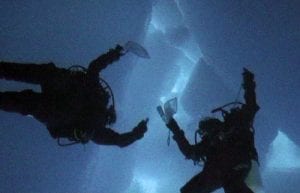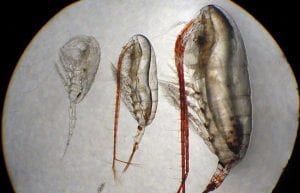Polar Life
The Polar Imperative
WHOI researchers tackle big questions in a melting world
Wind Water and Ice
Like fiction, but real. Explore the “superpowers” of three Antarctic icons
Nowhere to go
As sea ice dwindles, Antarctic krill face an uncertain future
Filming in the Arctic Night
A behind-the-scenes look at the making of the Emmy-nominated PBS film, Life in The Dark: The…
On the crumbling edge
The race to ensure protection for the emperor penguin across the world
Specks in the Spectrometer
Mass spectrometer facilities can be a rite of passage for scientists—as well as for the…
From Penguins to Polar Bears
Polar ecosystems are especially vulnerable to climate change. They are also notably hard to study…
The Scientist and the Poet
Alice Alpert, a graduate student in the MIT/WHOI Joint Program, studies what the chemistry of…
Beneath Arctic Ice, Life Blooms Spectacularly
Scientists have discovered a massive bloom of phytoplankton beneath ice-covered Arctic waters. Until now, sea…
Scientists Discover the “Vitamin B12 Claw”
Scientists have revealed a key cog in the biochemical machinery that allows marine algae at…
The Latest Fashion in Bowhead Whale Songs
Whales, it turns out, are dedicated followers of fashion. There’s a style to the song…
Will Climate Change Disrupt the Arctic Ecosystem?
After long, dark winters, sunlight returns to the Bering Sea in spring, re-launching a bountiful…
Melting Ice Threatens Polar Bears’ Survival
The Department of Interior’s imminent decision on whether to place polar bears on the federally…
What Brings the Food that Brings the Whales?
Watching the gray, pitching ocean from the beach in Barrow, Alaska, Carin Ashjian, a biologist…
Voyages into the Antarctic Winter
At the extreme ends of the Earth, Antarctica is a vast, rocky continent, mostly ice-covered…
Life in the Arctic Ocean
Capped with a formidable ice and snow cover, plunged into total darkness during the winter,…
